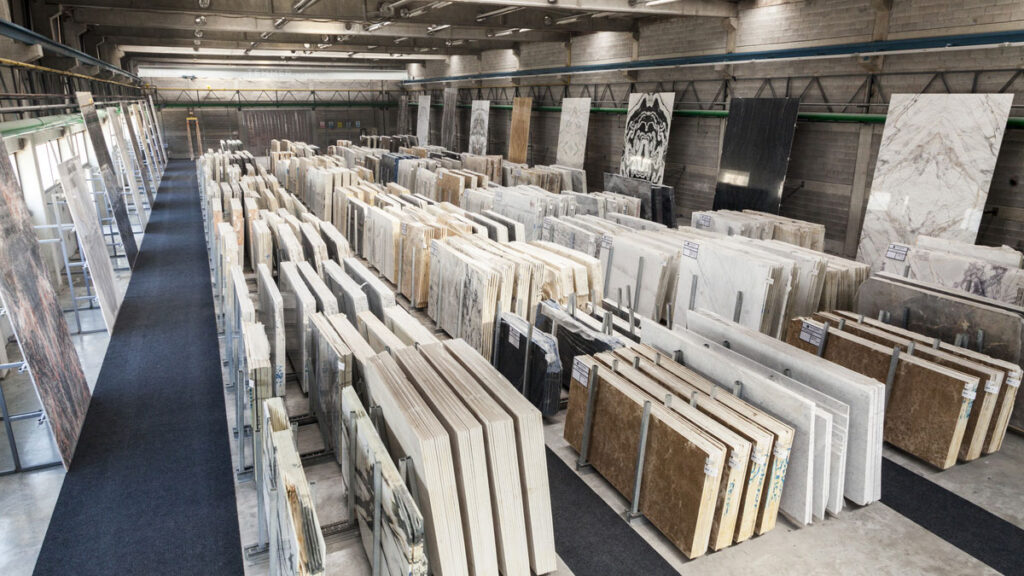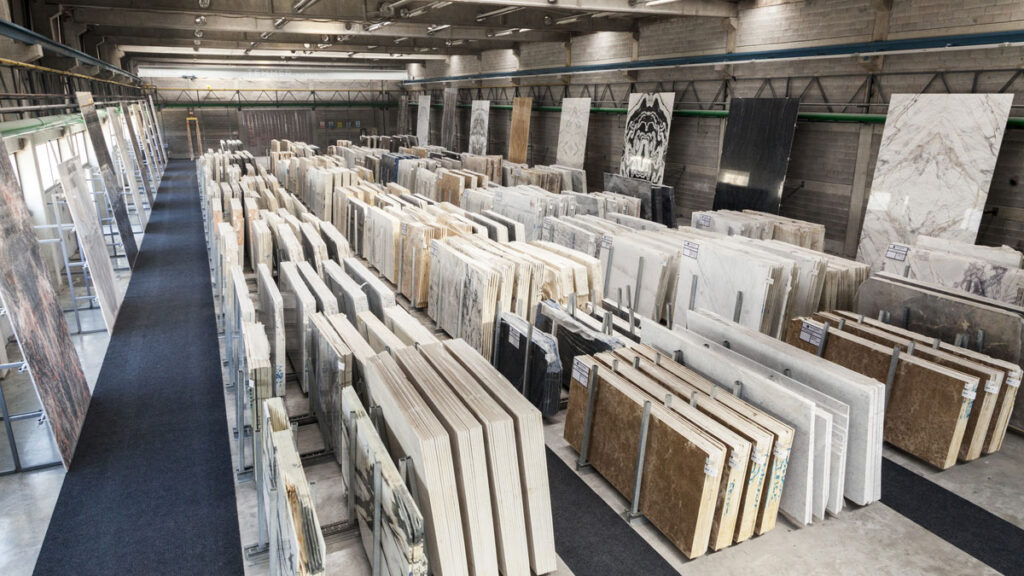Sharp Increase In Afyon Marble Exports To China

A history of 3,000 years
Turkey’s marble exports to China and the Chinese market have increased in recent years. With a history of more than 3,000 years in marble manufacturing, the district of Iscehisar in Afyonkarahisar represents a significant share of Turkish exports to this region.
Exported to 120 countries
The famous “Afyon marble” produced in the district, which includes some 500 marble manufacturing companies, is exported to 120 countries, including China, India, the United States, Iraq, France, the United Arab Emirates and Saudi Arabia. Businessmen and trade delegations from China place orders in face-to-face meetings with marble manufacturers at Iscehisar. Marble exports from Iscehisar to China in the first five months of the year amounted to $17.89 million, compared to $15.83 million for the same period last year, an increase of 13%.
“When we talk about marble in Turkey, the first place that comes to mind is Iscehisar”
Muharrem Çakmak, president of the association of marble manufacturers of Iscehisar, told: “When we talk about marble in Turkey, the first place that comes to mind is Iscehisar”.
“Capital of marble production”
Pointing out that marble manufacturing in the region, which is known for its natural stone reserves, has a long history, Çakmak said that they have named Iscehisar as the “capital of marble production”. Pointing out that marble manufacturing in the region had been an important industry since the Byzantine and Roman periods, he added: “Today, when we talk about Iscehisar, everyone thinks of determined, enthusiastic and hard-working people who make a living from the marble industry.”
Great value to the national economy
Stressing that the marble sector is the most important means of earning a living in the district, Çakmak said that there are some 500 large and small marble manufacturing enterprises and workshops in the region, which add significant value to the national economy.
Used for many purposes
1.Çakmak said: “We sell our products on the domestic market and abroad. In the construction sector, they are used in exterior coverings, floor coverings and for ornamental purposes. In overseas markets, we export raw materials such as block marble to many countries, mainly China and India. We also export processed marble to the United States, Iraq, Saudi Arabia, Syria, Azerbaijan and so on. »
Afyon marble becomes very popular in China
Wang Bin, a Chinese businessman, said they came to Turkey every month to buy marble, pointing out that they had been importing marble from the country for almost a decade.
“I buy the marble from Turkey all the time. Afyon marble has become very popular in China in recent years. Since grey stones are particularly popular in our country, our preference was particularly for Afyon marble. I am not alone; many Chinese businessmen also come here to negotiate the purchase of marble” he said.
Noting that Afyon marble is mainly used in construction, M. Wang said that China was an overpopulated and constantly developing country in terms of population. He further stated that his country valued marble very highly, adding that it was no longer a luxury but an element of daily life for them.
“We use Turkish marble all over China. It is used for the interior and exterior cladding of buildings, as well as in bathrooms, kitchens, shopping centres, many luxury homes and artists’ houses. China will continue to buy the marble from Turkey” he added.
Domestic and foreign markets
Yalçın Özsarı, the head of a marble manufacturing company, said that his company cut and extracted marble in blocks from the marble quarry at Iscehisar and sold it on the domestic and foreign markets.
Özsarı said: “In the beginning, our exports to China were meager. We ship two containers of marble per month. Over time, our exports to that country have increased. We currently have six Chinese customers and regularly produce for these companies.
Businessmen and trade delegations from China gave instructions following individual meetings with marble manufacturers in the district of Iscehisar.
“About 60% of the imported marble used in China is Turkish marble” Li told.
Pointing out that 50% of the marble exported by Turkey was going to the Chinese market, Deng Li said that this would lead to stable and long-term trade relations between the two countries. Stressing that this cooperation on marble between China and Turkey was built on solid foundations, the Ambassador added: “That’s why I think a lot about the future of Turkish marble on the Chinese market.
If you want to see more useful information about different categories, please visit our website.



